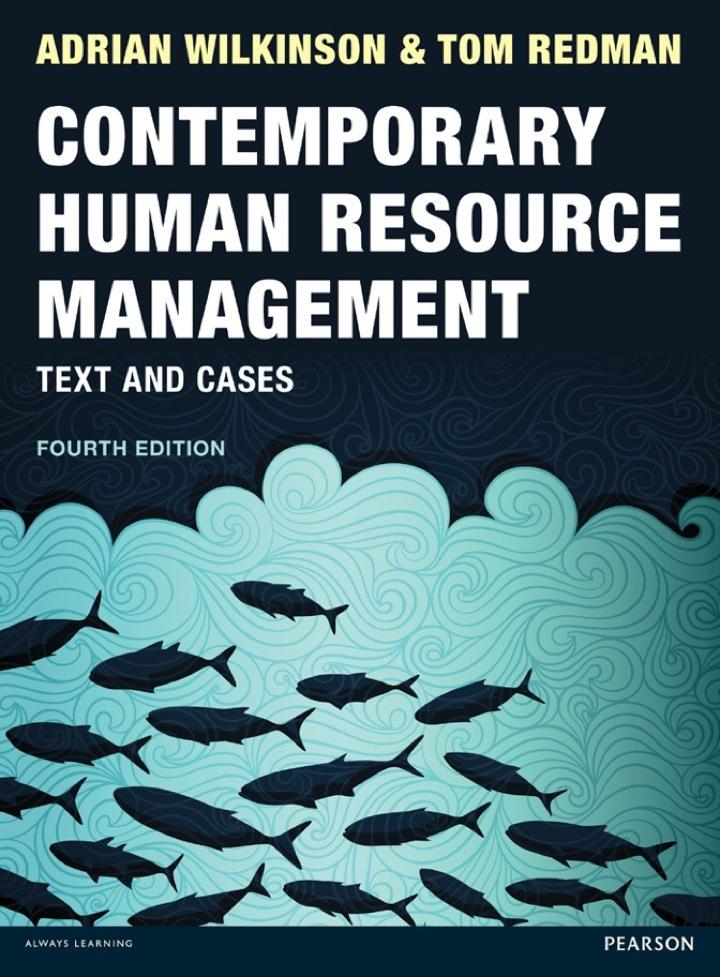Hislop (2008) reconceptualized Frenkel et al.s knowledge work framework to make it compatible with the all work
Question:
Hislop (2008) reconceptualized Frenkel et al.’s knowledge work framework to make it compatible with the ‘all work is knowledge work’ perspective. The utility of the revised framework was illustrated by using it to describe and understand the skills and knowledge involved in two different jobs: management consultants and office equipment service engineers.1 Data on the engineers was collected via conducting interviews in three small office equipment servicing companies based in the same city in the English Midlands, while data on the consultants was collected via conducting interviews in two small HRM-focused management consultancies, from the north-west and south-west of England. Both these groups of workers were classified as knowledge workers, with the skills, knowledge and level of creativity involved in their work being summarized in Table 18.3.
OFFICE EQUIPMENT SERVICE ENGINEERS
The day-to-day work of the engineers involved visiting customers within a particular geographic area to repair, service and install office equipment such as copiers, fax machines, printers and scanners. The number of clients visited per day typically varied from between two to seven dependent upon the complexity of particular jobs. For the service engineers, the level of creativity typically involved in their work was relatively low. This was because the majority of the jobs they did were relatively repetitive and required little diagnostic analysis, with most repair and service work involving dealing with similar types of repairs and tasks. In terms of the skill dimension of the framework, there was a reasonable need to make use of all three skill types. First, action based skills were needed, as most jobs involved some amount of physically disassembling and reassembling equipment. Thus one engineer compared such work to carrying out a routine service on a car. Social skills were also necessary to allow effective communication not only with clients, but also with colleagues. The individualized nature of their work, which involved travelling to clients and working alone, required much of this communication work to be done by mobile phone.
The apparent simplicity of most jobs undertaken by the engineers was a little deceptive as it disguised the extent to which intellective skills were used. This was

largely because these skills were relatively tacit, having been developed through experience. This process was summed up by one engineer as follows, You do the training course and they show you how the machine works: you take it apart. But when you get to that machine [on a job] it is when you start learning and obviously the first time you have a fault it might take you a couple of hours to figure out what it is and then the next time you go, because you have had it before you are straight in and sort it.
In terms of knowledge, the engineers made little if any use of theoretical knowledge, but their work did involve developing and utilising contextual knowledge.
This consisted of an understanding, developed over time, of what the business needs of their client’s office equipment were (the engineers covered specific geographic areas and over time visited the same clients many times), and how this impacted on the type of problems that typically developed. One engineer described this as follows, You get to know what they expect from the machine, which might be quite different from what someone else’s identical machine expects.
Thus, the way their clients used their office equipment affected the type of faults that their equipment developed and having an understanding of this constituted contextual knowledge for the engineers. They drew on this knowledge and combined it with the action-based and intellective skills they possessed in diagnosing and repairing these faults and carrying out their work..........
Question
1 Do you agree with the analysis that is presented, that due to the requirement of the service engineers to utilize contextual knowledge that they can be classified as knowledge workers?
2 If a knowledge worker is defined as anyone whose work involves the use of a reasonable amount of theoretical or contextual knowledge can you think of any occupations that it isn’t appropriate to label knowledge work?
Step by Step Answer:

Contemporary Human Resource Management Text And Cases
ISBN: 9780273757825
4th Edition
Authors: Tom Redman, Adrian Wilkinson





